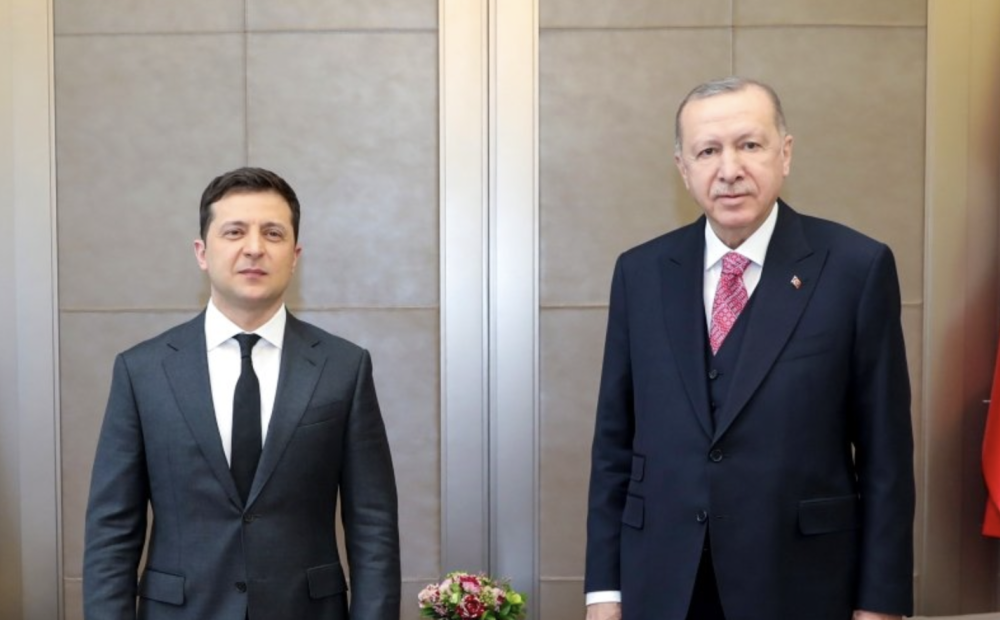A Conversation with Turkish Ambassador Mercan on the Ukraine Crisis

The escalating crisis on Ukraine’s border with Russia threatens Turkey’s gains in economic and military capabilities over the past 20 years, and quest for semi-great power status. Positive resolution of the Ukraine crisis from NATO’s standpoint is unlikely absent Turkish support. The Wilson Center hosted Turkish Ambassador to the U.S. Murat Mercan to discuss Turkey’s role in the Russian-Ukrainian crisis.
This event is part of the Wilson Center's Hindsight Up Front | Ukraine initiative.
Event Summary
Russian President Vladimir Putin and Russia’s actions in Ukraine are a clarifying moment. Turkey, an ally to the US, immediately condemned Russia’s invasion of Ukraine as a clear violation of international law. Turkey openly opposed the invasion and aims to minimize human suffering in Ukraine and increase regional peace and stability.
President Erdogan of Turkey maintains that NATO should do more than speak or gather. Like Syria, Libya, and Afghanistan, a tragedy is taking place, and a unified stance is necessary. The international community’s initial response was to enforce severe sanctions against Russia to inflict financial and political consequences for the invasion. Implications of such sanctions tend to extend much further than the country they are intended to hurt, and therefore it’s essential to weigh the burden that sanctioning countries will carry.
The Minsk Agreement, a series of international agreements adopted to end the 2014 Russo-Ukrainian war, is of utmost importance. President Putin’s decision to invade Ukraine is a clear violation of the agreement, and so far there have been no developments in achieving a diplomatic end to the conflict. This aggression has incited both internal and external opposition to Putin; indeed, protests have emerged in several Russian cities against the invasion.
Turkey’s economic, diplomatic, and military capabilities have crucial geostrategic importance, which make it a key NATO member in the region. However, the country’s dependence on Russian gas and trade could have an impact on its response to the ongoing crisis and possible diplomatic contribution to solving the crisis. For this reason, maintaining the pre-Russian invasion status quo in Ukraine is preferable to Turkey as further conflict will threaten its domestic and foreign interests.
The world is changing, and every era has its own foreign policy agenda. There is great power competition, and increasing ties with partners and neighbors is vital for governments to better position themselves. Considering that most conflicts occur in Turkey’s neighborhood, improving diplomatic relations will stabilize the region and have a global impact. The new era necessitates enhancing cooperation with key countries.
Speakers


Introduction

Moderator

Hosted By

Middle East Program
The Wilson Center’s Middle East Program serves as a crucial resource for the policymaking community and beyond, providing analyses and research that helps inform US foreign policymaking, stimulates public debate, and expands knowledge about issues in the wider Middle East and North Africa (MENA) region. Read more


Kennan Institute
After more than 50 years as a vital part of the Wilson Center legacy, the Kennan Institute has become an independent think tank. You can find the current website for the Kennan Institute at kennaninstitute.org. Please look for future announcements about partnership activities between the Wilson Center and the Kennan Institute at Wilson Center Press Room. The Kennan Institute is the premier US center for advanced research on Eurasia and the oldest and largest regional program at the Woodrow Wilson International Center for Scholars. The Kennan Institute is committed to improving American understanding of Russia, Ukraine, Central Asia, the South Caucasus, and the surrounding region through research and exchange. Read more
